report

of Rusagro Group LLC
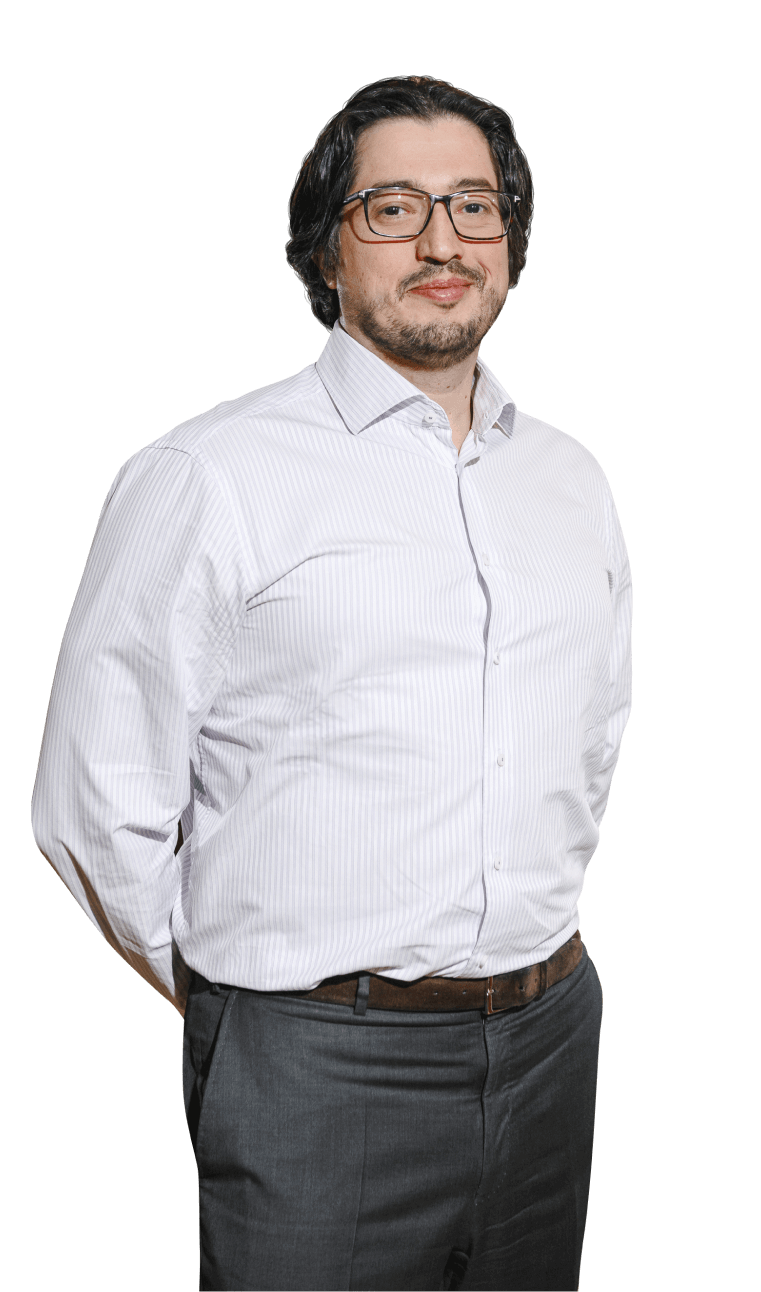


The combined business consisting of NMGK and Rusagro’s Oil and Fats Business was the largest contributor to the Company’s revenue in 2023, accounting for 45% of Rusagro’s revenue and 31% of EBITDA before inter-segment eliminations and income from other activities. The combined business’ revenue rose by RUB 6.6 billion to RUB 139.9 billion, up 5% on the previous year. EBITDA rose 17% (+2.7 billion) to RUB 18.7 billion. The EBITDA margin increased by 1.4 percentage points to 13.4%. This was driven by the completion of the acquisition of a 50% shareholding in and control over NMGK and the consolidation of results for the second half of the year.
The resulting combined business was able to implement a number of synergies to improve efficiency. Cost of sales increased at a slower rate than revenues, which drove up the business’s profit margin. Another outcome of this successful acquisition was an increase in the combined business’s market share in all key categories. Rusagro is now Russia’s biggest producer of crude sunflower oil and mayonnaise. Its share of the industrial fats market has increased to 30% and its share of the consumer margarine market to 65%.
In addition, several very strong brands have been added to Rusagro’s portfolio, including Ryaba mayonnaise, one of Russia’s best-loved mayonnaise brands, as well as Khozyayushka margarine, Astoria sauces, and Kremlyovskoye spreads.
Revenues from the Sugar Business continued to grow, and it remained Rusagro’s second largest business segment in 2023, contributing 21% of revenue and 32% of total EBITDA before inter-segment eliminations and revenues from other activities. Sugar segment EBITDA in absolute terms rose by 22% (+RUB 3.5 billion). The business delivered record revenues of RUB 64.8 billion (+31%, or RUB 15.2 billion), and a 30% profit margin.
This was driven by higher production volumes due to a bigger harvest and high sugar beet quality, as well as the development of key sales channels in Russia and abroad.
It has been an extremely successful year for the Agriculture Business. The Company ended the year with a 4% larger land holding. Crop sales rose by 64% to a record 7.2 million tonnes. Revenue also reached a record high of RUB 56.9 billion, a 78% increase year on year, accounting for 18% of Rusagro’s total revenue and 28% of EBITDA. The segment delivered a healthy profit margin of 30% (−0.7%). As a result, adjusted EBITDA rose by 74% to RUB 17 billion (+RUB 7.2 billion).
Due to the completion and launch of the vertically integrated pig-breeding cluster in Primorsky Territory at full capacity, Rusagro was able to increase its commercial livestock production. This enabled it to offset the consequences of an outbreak of infection in the second half of the year at some of the pig farms in the region. Sales volumes were at more or less the same level as the previous year, held back by production volumes which, in turn, remained largely unchanged due to the impact of quarantine measures. The Meat Business benefited from a favourable pricing environment on the domestic and export markets.
Revenue grew by 11% (+RUB 4.8 billion) to an unprecedented RUB 48.5 billion. EBITDA also demonstrated phenomenal growth, more than tripling to RUB 5 billion. The EBITDA margin rose by 7%, hitting 10% in 2023. At year end, the segment’s contribution to Rusagro’s revenues and EBITDA before inter-segment eliminations and income from other activities was 16% and 8%, respectively.


The development of human capital plays a key role in ensuring the sustainable growth of all Rusagro business segments. The Company has developed distance learning to facilitate the development of both personal and professional competencies, and in 2020 adopted a digital platform including a range of technological software solutions across all its businesses. As a result, there has been a significant increase in the number of courses completed in the last five to six years. In 2018, for example, 9,717 courses were completed, while in 2023, 191,280 courses were completed, up 35% on the previous year.

To achieve this goal, in 2008 the Board of Directors approved a strategic “from field to shelf” concept, whose implementation is based on the Company’s vertically integrated business model for food production. The Company remains as committed to this concept as it has been in the past.
The growth of shareholder income is due in part to the Company’s increased market capitalisation, as this increase translates into a proportional rise in the value of assets in the investor’s portfolio.
Market capitalisation growth is directly or indirectly included in our annual senior management KPIs. This is a way to align the interests of shareholders with the objectives of Company management, whose approaches and performance are assessed and revised on an annual basis.
The strategy adopted by Rusagro and the Company’s business units is developed for a five-year timeline and reviewed annually by the Board of Directors. This allows us to shift the focus of our efforts in response to changes in the external environment, effectively allocating both financial and human resources. The successful implementation of the Company’s strategy is founded on long-term priorities, informed decision-making, and a careful approach to the investment process that ensures acceptable risks and a high return on share capital.
Rusagro’s strategy is laid out in a confidential document. Targets are not subject to public disclosure, as this carries significant risks and may impede the Company’s success. The current strategy is based on four key priorities reflecting the main areas of strategic development.

the business
Rusagro is working to increase production volumes and expand operations into other regions across all four business segments so as to maintain our leading position on the market. This objective is achieved through:
- organic growth — constructing new production facilities, increasing our land holding, and modernising/expanding our current assets
- non-organic growth — acquiring other companies and assets, including in new business areas
- increased market share in the regions where we operate, entry into new Russian regions, and access to new countries through the development of our export operations
return on sales
through increasing sales of our retail produce and brands
Guided by the “from field to shelf” concept, Rusagro strives to develop more profitable retail products by:
- increasing the processing of manufactured products and high value-added processing in the product line
- expanding our product range
- increasing our visibility in retail sales channels
- developing our own brands and promoting them on the consumer market
efficiency
through digital transformation and innovation
In this era of technological revolution, the development and application of innovative IT, automation, and biotechnology solutions are increasingly presenting opportunities to improve efficiency, reduce costs, improve product quality, and generate additional income. Key areas of focus relating to this strategic priority include:
- the introduction of precision farming technology
- business process automation
- the use of the latest methods in biotechnology
- efforts to increase yields and soil fertility
our human
resources
The development of our human capital plays a key role in ensuring the Company’s sustainable growth. Our main goals in this area are:
- managing labour efficiency and productivity
- enhancing the attractiveness of our employer brand
- increasing the speed and quality of our hiring
- improving the quality of our workforce and increasing internal recruitment
In the Oil and Fats Business, the bulk of investments were allocated to the modernisation of the oil extraction plant in Balakovo, as well as the revamp of the production site in Ulyanovsk. A total of RUB 3.5 billion was invested, including RUB 0.3 billion in NMGK.
Rusagro invested RUB 8.4 billion in developing and maintaining its Agriculture Business in 2023, up 143% on the previous year. A significant portion of these investments was used for purchasing a JSC BioTekhnologii grain elevator, expanding the fleet of vehicles, replacing retired agricultural machinery, and applying irrigation systems.
In the Meat Business, the bulk of investments were allocated to business development, primarily in connection with the completion of the investment phase of the project to construct a vertically integrated cluster in Primorsky Territory, as well as the expansion of the boning facility and construction of a frozen product warehouse in Tambov Region. Total investment stood at RUB 4.4 billion.
In 2023, Rusagro’s investment in developing and maintaining its Sugar Business totalled RUB 2 billion, an increase of 66% on the previous year. About half the funds were put towards maintaining the existing business, whilst the other half were allocated to development, including improving the quality of raw materials and finished products, reducing sugar production losses and fuel consumption, and automation.

 including NMGK.
including NMGK.

report for 2018–2023

Against the backdrop of an overheated agricultural land market, Rusagro has focused its efforts in recent years on optimising the cost of land holding ownership and increasing its share of directly owned land. As of 2023, 54% of the agricultural land managed by the Company was under its direct ownership.
In October, the Company completed its acquisition of a 100% stake and control of a JSC BioTekhnologii grain elevator in Tambov Region with a maximum storage capacity of 240 thousand tonnes of grain. This will allow the Company to reduce storage costs, optimise logistics chains, and improve the overall efficiency of its Agriculture Business.
2023
1,306 ths tonnes
2018
875 ths tonnes
owned directly by the Company
2023
54%
2018
51%

Over the past five years, Rusagro has significantly expanded its oil and fats production capacity, becoming a leader in the Russian market. In 2019, the Company leased and undertook the phased buyout of two oil extraction plants and one oil and fats plant owned by Solnechnye Produkty. In 2023, the Company completed the acquisition of a 50% stake in and control over NMGK Group, a leading producer of oil and fat products. This has enabled the Company to greatly expand its product range and increase production levels.
of Oil and Fats Business
of NMGK
2023
888 ths tonnes
2018
279 ths tonnes
of Oil and Fats Business
of NMGK
2023
394 ths tonnes
2018
10 ths tonnes
products of Oil and Fats Business
products of NMGK
2023
496 ths tonnes
2018
163 ths tonnes

In an effort to maintain its share of a growing market and build up its capacity to export pork, in 2018−2023 Rusagro invested in expanding pork production in Tambov Region, created a vertically integrated cluster in Primorsky Territory, and acquired several pig farms in Belgorod Region.
2023
334 ths tonnes
2018
204 ths tonnes

Over the past five years, Rusagro has focused on increasing sugar production from processed raw materials. This was made possible by the opening of two molasses desugarisation plants in 2017 and 2019, which can produce an additional 120 thousand tonnes of sugar from the same volume of sugar beet.
of sugar from extract
2023
118 ths tonnes
2018
34 ths tonnes

The main objective of Rusagro’s Oil and Fats Business is to maintain market leadership in its home regions. In the Ural Region, the Provansal EZhK brand is ranked first on the mayonnaise market, while the Schedroe Leto brand is ranked first for consumer margarine. In Central Russia, the Ya Lublu Gotovit umbrella brand is ranked second on the mayonnaise market.


in the Ural Region
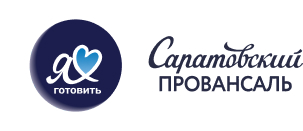
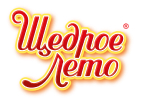
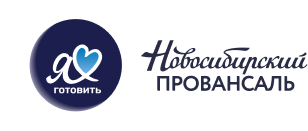



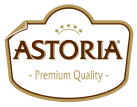


Following the launch of its Slovo Myasnika brand at the end of 2016, Rusagro has been steadily increasing production of own-brand consumer pork products, while strengthening brand recognition and consumer loyalty.
on the Russian market by category
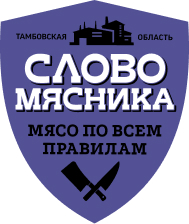
chilled products category



Rusagro has been a leader in the Russian retail sugar market for many years. The Russkii Sakhar and Chaikofsky brands continued to rank first and second in the Russian white cube sugar market, while Brauni takes first place in the brown cube sugar market. The brands’ combined share of the white cube sugar market is 55%, with Brauni taking 23% of the brown cube sugar market.
AC Nielsen results for November 2023.
Source: AC Nielsen for December 2023



To integrate automation systems and find innovative ways to optimise production processes, a digital transformation strategy has been approved in each Rusagro business segment, forming part of each segment’s overall development strategy. In all Rusagro business segments, the aim of the digital transformation strategy is to increase profits by reducing costs, enhancing risk management, and increasing productivity by reducing human error and improving the quality of decision-making.
To ensure that strategy milestones are successfully met, in 2023 the IT services of all business segments were centralised within Rusagro-Tech. A mathematical modelling service was set up to support the Company’s objectives with regard to working with artificial intelligence and machine learning technologies. By the end of 2023, there were ten people on the team and ten projects in development.
a centralised EDMS
- Mitigate the risks and consequences of violating local laws and regulations
- Improve the speed of in-process management decision-making
- Reduce costs associated with document management for centralised processes
- Ensure reliable reporting and monitoring of document management for centralised processes across all business segments
- Expedite the automation of centralised processes
- Reduce the cost of owning IT solutions for the automation of document management for centralised processes across all business segments
- Preserve the option to completely replace the Agriculture Business EDMS (OpenText) as part of subsequent projects
- Consider retiring local business segment EDMS as part of subsequent projects
management system (replacement for SAP SF)
- Reduce the risk of stoppage/disruption of HR processes and increase import independence by replacing the existing SAP SuccessFactor platform
- Maintain the existing approach to the unified master system of HR management
- Improve user experience by increasing solution customisation options (compared to SAP SF)
- Mitigate the risk of fines (1–18 million) for violations in respect of the cross-border transfer of personal data
management
- Reduce the cost of adopting digital products by up to 25%
- Expedite the introduction of digital products by up to 30%
- Reduce operating costs of current digital products by up to 20%
- Ensure that the Company’s information systems are prepared for LLC Rusagro-Tambov’s entry into the tax monitoring regime on 1 January 2024
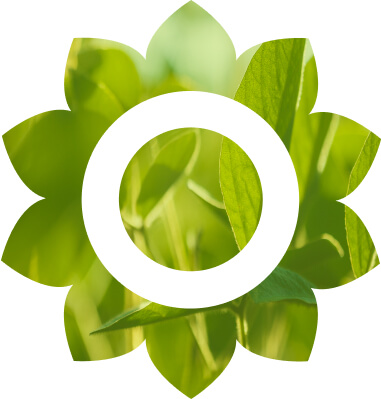
History platform
- Develop and roll out the Field History Cloud Service software into the Agriculture Business IT landscape; integrate internal systems (accounting system, access control and management system, meta algorithm, strat algorithm, lane guidance system) as part of the transition to Russian software and replacement of the foreign Cropwise solution by 2026
- Connect 220 users (automated workspaces) to Field History Cloud Service software by 2026
fertiliser stock flow
- Expand the existing mineral fertiliser stock flow process by obtaining information on the weight of MF, identifying MF containers, automating the process of transferring MF to production facilities, and identifying recipients
Algorithm
- Automated generation of optimal crop rotations combined with a production programme for each field designed to maximise cash flow within a strategic planning horizon, using modelling and optimisation tools
- Automate agricultural machinery operations in the field
- Increase machinery productivity and reduce fuel and lubricant costs (by 6.4%) through the use of navigation equipment, RTK-gsm correction, and adoption of the lane guidance parallel driving system
- Maximise profit by minimising the possibility of lower yields and properly allocating/using resources (machinery, people) for technological operations and to reduce yield loss in fields during the harvesting period
- By November 2024, achieve an 85% convergence rate across all metering devices
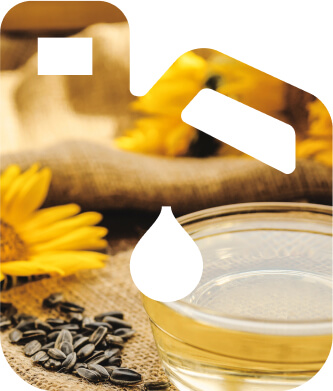
- Ensure capacity utilisation
- Develop a programme to increase sunflower production and yield to 17.3 dt/ha and increase the revenue of growers
- Provide agricultural producers with recommended production technologies and access to various financing options
- Generate additional revenue for the Company by creating new processes
- Generate savings by optimising and automating existing processes
- Create a unified digital environment for end-to-end automated management accounting
- Improve production efficiency by reducing the likelihood of downtime, stoppages, and reduced productivity due to a shortage or absence of raw materials
- Improve the precision of sales forecasting and inventory control at company and distributor warehouses
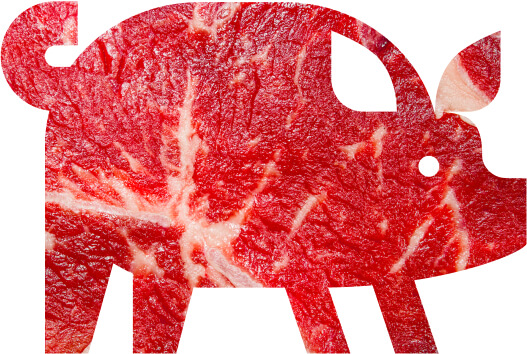
- Develop a video analytics system and test its precision and performance
- Animal count accuracy of no less than 99%
- Detect fever symptoms in at least 95% of cases
- Detect holder shed mortality with at least 95% accuracy
- Detect the availability/unavailability of feed in feeders with at least 95% accuracy
- Determine section washing quality with at least 95% accuracy
- Identify deviations in the state of equipment with at least 95% accuracy
- Improve live pork production
- Enable entry of production accounting data using the mobile app
- Enable prompt receipt of past data and planned events
- Expand the ability of operators to analyse previous livestock operations and assess physiological state of animals and production metrics
- Reduce labour costs
- Improve the speed and accuracy of record keeping

- Minimise the impact of the human factor on the vehicle weighing process
- Digitise weighing data
- Automate the detection of weight deviations from delivery document specifications. Prevent incidents of theft by monitoring the weight of the vehicle and comparing it with the weight of the shipment
- Automatically record the time of key technological operations at the facility
- Improve the quality, accuracy, and integrity of data from quality service laboratories
- Reduce maintenance and renovation costs
- Increase labour productivity
- Improve the accuracy of information in terms of actual labour intensity and the scope of maintenance and repair work
- Expedite equipment defect reporting
- Increase the quality of maintenance and repair work
Rusagro has been working over the last few years to create a sustainable development strategy. Our goals are to maintain stable growth, create more value for all stakeholders, and increase the transparency of non—financial information relating to our activities. In 2023, the Company continued to work on its ESG strategy, and will continue to make efforts to minimise its adverse environmental impact, ensure the rational consumption of natural resources, take care of employees and customers, support local communities, and develop responsible business practices.
An example of this is Rusagro’s participation in non-profit organisations promoting the ESG agenda in Russia. In 2023, Rusagro helped found the National ESG Alliance, of which it is now an active member.
the needs of different groups of stakeholders, and the regulatory requirements of Russia, the UK, and the EU







to minimise adverse effects on the environment
- uses sustainable agriculture methods
- preserves soil health
- minimises emissions of greenhouse gases and pollutants
- reduces energy consumption and improves energy efficiency
- reduces pressure on water resources by optimising water consumption
- minimises wastewater pollution
- reduces the volume of waste produced

to ensure the high quality and sustainability of our corporate governance
- ensures a transparent ownership and management structure for the Company
- promptly discloses non-financial information
- actively interacts with investors and shareholders
- monitors compliance with business ethics and applicable legislation
- establishes responsible supply chains

to improve the attractiveness of the employer brand and social development in the regions where the Company operates
- provides training for employees and supports their career growth
- creates safe working conditions
- ensures equal rights and opportunities
- provides social support and financial incentives
- increases employee engagement
- invests resources in supporting and developing local communities



















Rusagro strives to create new jobs in the regions where the Company operates and provides employees with fair and decent pay for the work they do. The Company categorically rejects the use of forced and child labour, and complies with international human rights and employment standards.

As an agro-industrial company producing key products for mass consumption, Rusagro considers its main objective to be providing consumers with high-quality food at reasonable prices. The Company is also conscious of its role in ensuring national food security.

Rusagro cares about the health of its employees and consumers alike. The Company is implementing a comprehensive employee health protection programme, and adheres to high product safety standards, as well as making products which support a healthy lifestyle.

As part of our programme to support local communities and social development in the regions where we operate, Rusagro undertakes charitable projects aimed at developing educational infrastructure and organises educational events. Additionally, Rusagro pays considerable attention to developing its own workforce, investing in training and professional development for its employees.


The Company operates a zero-tolerance policy towards all kinds of discrimination. Rusagro sees diversity as a source of inspiration and opportunity. The overall proportion of women in the Company is traditionally about 35%, with this figure rising to 60% in specialist roles.

Although the regions where Rusagro operates do not face risks associated with limited water resources, the Company places significant emphasis on optimising water consumption and minimising wastewater-related environmental pollution.
The Company is actively engaged in the implementation of water recycling systems, water reuse, and automation of the water consumption management system. The Company is also taking measures to improve wastewater quality.


As part of our measures to reduce atmospheric emissions, Rusagro is mandatorily installing air-cleaning and dust- and gas-collecting equipment. The Company is taking steps to reduce energy consumption and improve energy efficiency.

Rusagro strives to be an industry leader in its use of advanced technologies, allocating significant funds to develop and implement innovative solutions in the field of IT, automation, and innovation. The Company is particularly focused on the introduction of precision farming technology, business process automation, and the improvement of soil yield and fertility.

Across all Rusagro divisions, work is underway to reduce the volume of waste produced and the reuse of resources, as well as to explore the possibility of implementing circular economy principles. Most industrial waste and by-products are reused in the production of deep-processed products or the allocation of valuable resources.

When using fertilisers, Rusagro adheres to environmental safety regulations to eliminate the risks of soil contamination. The Company’s approach to land use also entails land recultivation and the introduction of fallow land deposits into circulation, as well as the use of crop rotation optimised to maintain soil quality, and careful soil processing methods.
